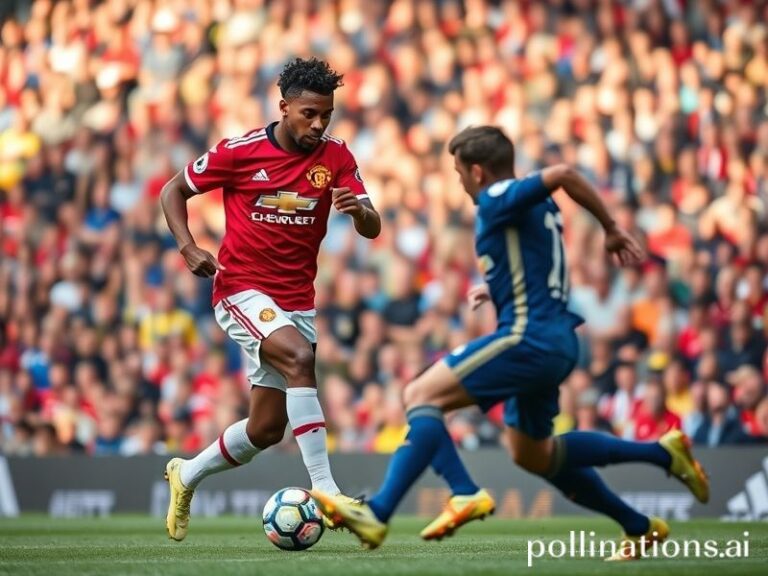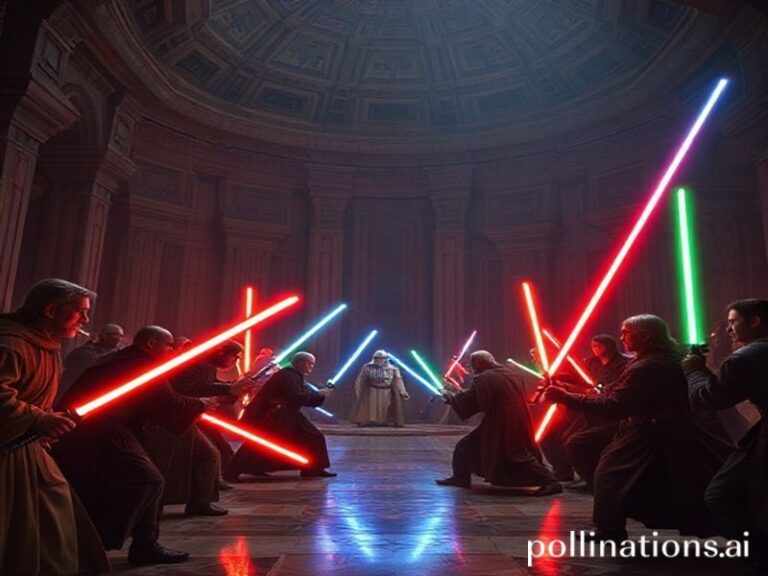Oriol Romeu: The €3.4 Million Symbol of Football’s Global Hangover
Oriol Romeu: The Midfielder Who Became a Geopolitical Punch-Line Without Trying
Barcelona—The last time the Camp Nou crowd cheered Oriol Romeu for anything, he was 16 and the world economy still believed in itself. Fast-forward fifteen years and the same man—now bulked up, balded slightly, and carrying the weary expression of someone who’s read the fine print on his own contract—was re-signed last summer for €3.4 million, a sum that sounds almost quaint in an era when a Saudi Pro League benchwarmer earns that in quarterly Instagram endorsements. On the surface it’s a simple football transaction: aging pivot comes home, tries to delay entropy for one more season. Beneath, it’s a perfectly on-brand parable for our late-capitalist circus.
Romeu’s return is global news only because Barcelona still insist on behaving like a superpower while their treasury resembles a Greek ministry’s petty-cash drawer. The club’s latest financial legerdemain—selling off future TV rights the way a desperate gambler hocks tomorrow’s paycheck—allowed them to register players long enough for Romeu to slip in under the La Liga salary cap. In other words, the same mechanisms that once financed imperial wars now determine whether a 31-year-old Catalan can legally chase 20-year-olds around a rectangle. If that doesn’t make you laugh darkly, you haven’t checked your 401(k) lately.
Internationally, Romeu’s career arc is a neat rebuke to globalization’s promise of upward mobility. After leaving Barcelona’s academy in 2011, he toured the proving grounds of European anxiety: Chelsea’s loan gulag, Stuttgart’s relegation scrap, Southampton’s existential mid-table purgatory. Each stop offered him a front-row seat to the continent’s slow-motion identity crisis. At Chelsea he watched oligarchs launder reputations through football; in Germany he observed a league that markets itself as fan-owned yet flirts with private equity like a bored housewife; in England he shared a dressing room with Brexit voters who adored him on Saturdays and wanted his EU passport revoked by Monday. Somewhere along the way he collected the standard souvenirs: Premier League runner-up medal (unused substitute, naturally), a few caps for Spain’s youth teams, and the quiet realization that professional sport is less escape from politics than politics in shin guards.
This season, though, Romeu has become an unwitting barometer for global supply-chain shocks. His performances oscillate between “vintage Sergio Busquets cosplay” and “man who’s just learned the ball is made of plutonium.” Analysts blame the yips; cynics note he’s playing behind a midfield that features two teenagers built like runway models and a center-back pairing whose combined age predates the Euro. But the deeper truth is that Romeu—like most of us—is trying to solve 2023 problems with 2011 firmware. The modern game demands pivots who can simultaneously break lines, break dance, and break down opposition data packets in real time. Romeu still thinks pressing is something you do to olives.
Still, there’s something almost heroic in his refusal to evolve. In a world addicted to optimization, Romeu remains stubbornly analog: a player whose first touch still says “I grew up on gravel pitches” and whose tactical vocabulary still includes the word “man-marking.” Watching him is like discovering a fax machine that still works—impressive, slightly sad, and vaguely threatening to anyone under 25.
The broader significance? Romeu is the rare athlete whose career mirrors the macroeconomic mood: early promise, exuberant export, steady devaluation, eventual repatriation at a discount. If Barcelona manage to flip him for a profit next summer, it’ll be hailed as a masterstroke of “economic levers”—a euphemism that sounds suspiciously like the euphemisms used to describe quantitative easing, debt restructuring, or whatever alchemy keeps the lights on in Buenos Aires. And if they don’t? Well, he’ll join the long list of cautionary tales about believing your own nostalgia.
Either way, Romeu will jog off into the Mediterranean dusk soon enough, another modest footnote in the ledger of a sport that long ago stopped pretending it’s just a game. Somewhere a hedge-fund analyst is already modeling his next depreciation curve, blissfully unaware that the joke, as always, is on all of us.







